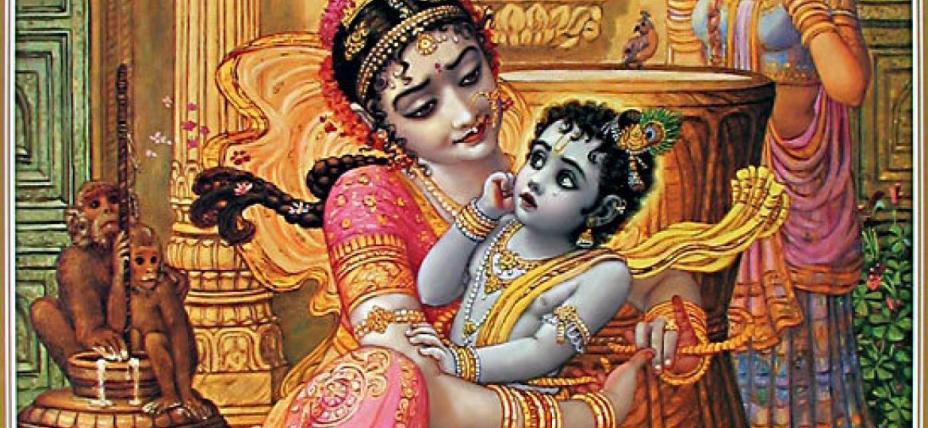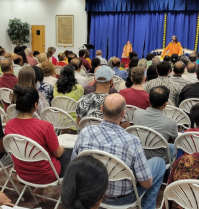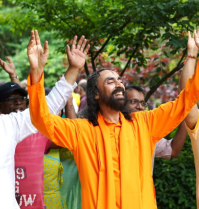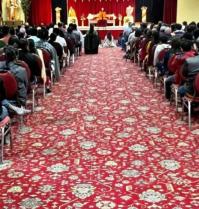Why is Bhakti Purifying?
Bhakti Yog / August 28, 2017

In the Bhagavad Gita, Shree Krishna explains to Arjun that there are three paths to attain Him: bhakti yog, karm yog, and jñān yog. The knowledge of bhakti is described by Shree Krishna as the king of sciences and the most profound of all secrets (BG v9.2). Why?
Let us understand this systematically. In Chapter 2 of the Bhagavad Gita, Lord Krishna explains secret knowledge (guhya). This is knowledge of the soul (ātmā) as a distinct entity from the body. Then in Chapters 7 and 8, He explains more secret knowledge (guhyatar) about His powers. Finally, in Chapter 9, Shree Krishna reveals the most profound of all secrets (guhyatam), which is knowledge of pure bhakti. We see, how Lord Krishna, while revealing divine wisdom to Arjun, sequentially uses different forms of the word guhya (secret), and declares bhakti to be the supreme of all secrets. But why is bhakti given this topmost designation?
Knowledge of bhakti is considered the most profound secret because it purifies the one who practices it sincerely. How? Bhakti requires constant meditation upon the divine forms, abodes, names, qualities, pastimes, and saints of the Lord. As a result of this effort, three types of poisons are destroyed—the sin (pāp), the seed of sins (bīja), and ignorance (avidyā). Let us attempt to understand these in detail.
Bhakti destroys the sin (pāp) of endless lifetimes
The pāp or sin refers to sinful acts in this lifetime as well as those from endless lifetimes. When the mind is constantly attached to God (nirantar bhakti), we naturally refrain from engaging in sinful activities. Sinful behavior does not have to be stealing or something obvious; it can also be a subtle desire for revenge, respect, etc. But if the mind is engaged in the divine at all times, how can one engage in wrongdoing? Thus, bhakti not only refrains us from committing new sins, but it also burns up the sins of the endless past lives.
Bhakti destroys the seed of the sin (bīja)
Destroying the sinful acts is not enough as the propensity to commit sinful acts in the future still exists. This is because the heart is still impure. For example, when one commits a robbery. One can atone for it by following the mandated punishment based upon the laws of the country. But what happens next? The moment one steps out of prison, he is ready to commit the same crime again! Why? Because the bīja or seed of the sin is the impure heart and consequently, the intent and thought of wrongdoing has not changed. How many times have we seen that one is already contemplating the next robbery while still in prison!
This thought of committing a sinful act stems from the material afflictions of lust, anger, and greed. Anger and greed, as we are aware, are the result of desire and all our desires are for self-happiness or self-seeking. In bhakti, we learn to redirect all our desires for the happiness of the Lord.
Bhakti destroys ignorance (avidyā)
In order to redirect all our desires, understand that to do anything requires knowledge. To make a pot, the potter needs to have the proper knowledge to make it. To pull off a successful bank robbery, the robbers need to have knowledge about multiple things—a map of the inside layout of the bank, placement and triggers of the alarms, vaults where the cash and jewels are kept, timing of the changing guard shifts, opening and closing hours, etc.
Similarly, currently, our desires stem from the misidentification with the material body. This is due to ignorance (avidyā). As we become more aware that we are not the body but the soul (described as secret knowledge by Shree Krishna in Chapter 2 of the Bhagavad Gita), we come to understand that we are not the enjoyer, rather we are His servants. And as the tiny soul, we are meant to serve the Supreme Soul. Thus, bhakti destroys the ignorance from endless lifetimes by shedding light on the true nature of the self. Once this knowledge is internalized, there is no way one can commit any wrongdoing.
The benefits of bhakti are described in the Bhakti Rasāmṛit Sindhu as follows:
kleśhas tu pāpaṁ tadbījam avidyā cheti te tridhā (1.1.18)[v1]
“Bhakti destroys the three poisons—pāp (sins), bīja (the seed of sins), avidyā (the ignorance in the heart).” Only when the three are completely destroyed, does the heart become truly and permanently pure. And it is only when the heart is pure that the Guru bestows it with divine love.

























